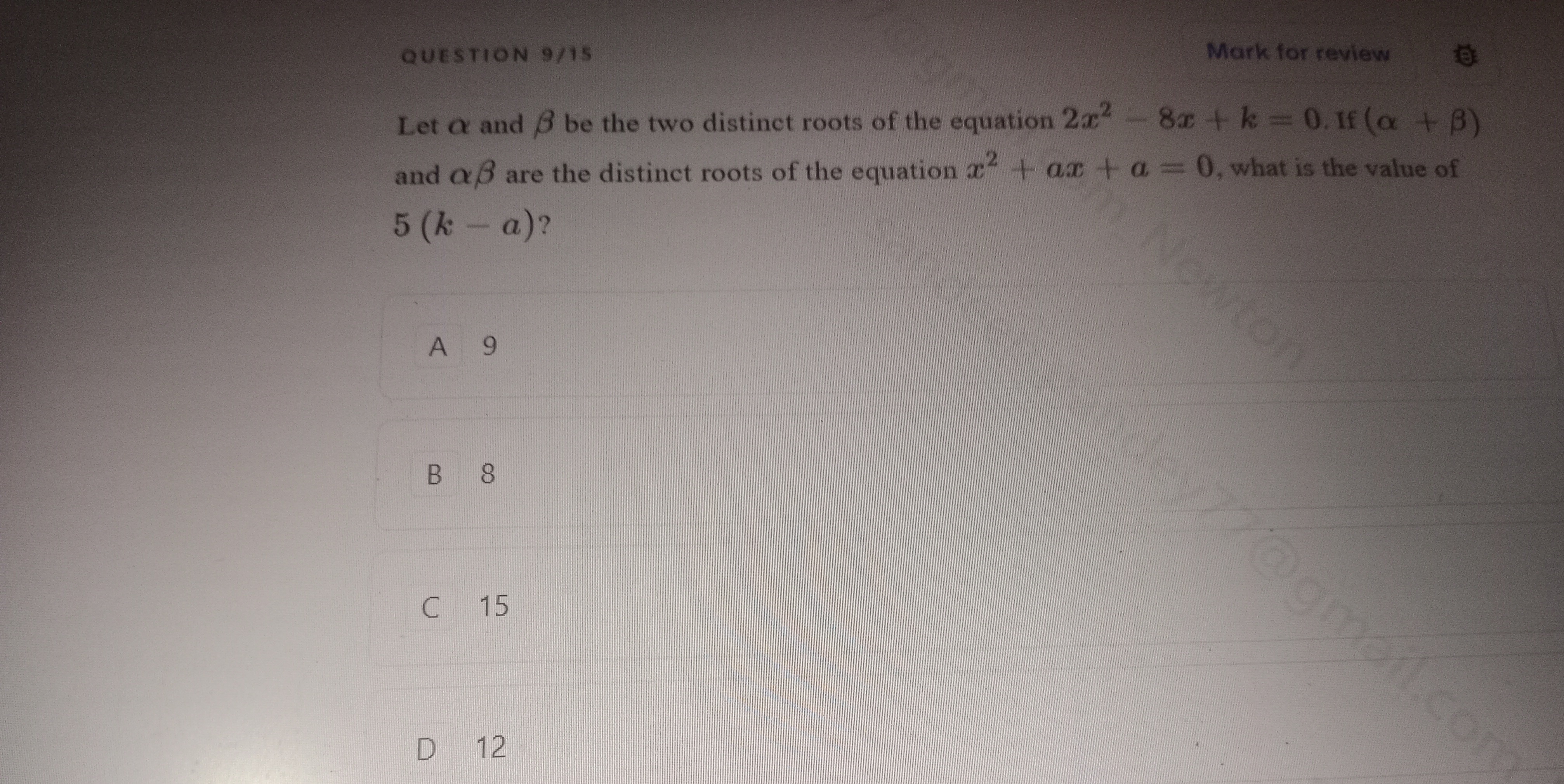Question
Question: Let $\alpha$ and $\beta$ be the two distinct roots of the equation $2x^2 - 8x + k = 0$. If $(\alpha ...
Let α and β be the two distinct roots of the equation 2x2−8x+k=0. If (α+β) and αβ are the distinct roots of the equation x2+ax+a=0, what is the value of 5(k−a)?

9
8
15
12
8
Solution
Let α and β be the two distinct roots of the equation 2x2−8x+k=0.
According to Vieta's formulas, the sum of the roots is α+β=−2−8=28=4.
The product of the roots is αβ=2k.
The problem states that (α+β) and αβ are the distinct roots of the equation x2+ax+a=0.
Let the roots of the second equation be r1=α+β and r2=αβ.
So, r1=4 and r2=2k.
Since the roots are distinct, r1=r2, which means 4=2k, or k=8.
According to Vieta's formulas for the second equation x2+ax+a=0:
The sum of the roots is r1+r2=−a.
Substituting the values of r1 and r2:
4+2k=−a (Equation 1)
The product of the roots is r1r2=a.
Substituting the values of r1 and r2:
4(2k)=a
2k=a (Equation 2)
Now we have a system of two linear equations with two variables k and a. Substitute the expression for a from Equation 2 into Equation 1:
4+2k=−(2k)
4+2k=−2k
To eliminate the fraction, multiply the entire equation by 2:
2×4+2×2k=2×(−2k)
8+k=−4k
Add 4k to both sides:
8+k+4k=−4k+4k
8+5k=0
Subtract 8 from both sides:
5k=−8
Divide by 5:
k=−58.
Now substitute the value of k back into Equation 2 to find a:
a=2k=2(−58)=−516.
We are asked to find the value of 5(k−a).
First, calculate k−a:
k−a=−58−(−516)
k−a=−58+516
k−a=5−8+16
k−a=58.
Now, calculate 5(k−a):
5(k−a)=5×(58)
5(k−a)=8.
Therefore, the value of 5(k−a) is 8.
